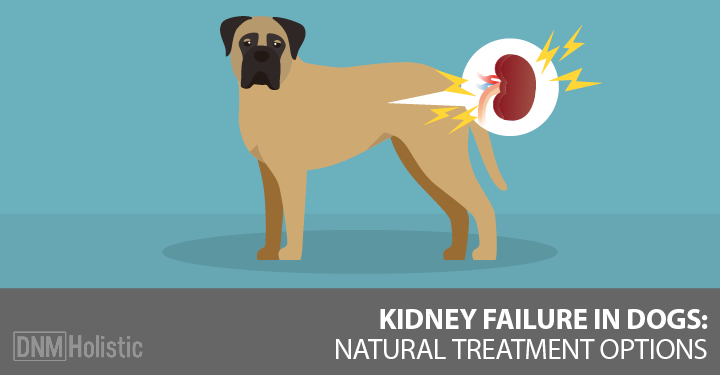Handy Reasons On Picking Dog Herbalist
Handy Reasons On Picking Dog Herbalist
Blog Article
Turmeric Is A Potent Anti-Inflammatory Ingredient That Can Be Utilized To Help Improve Joint Health For Both Cats And Dogs.
Curcumin, the active ingredient in turmeric, has been found to have potential benefits to support joint health in dogs as well as cat. How turmeric can benefit pets suffering from joint pain:
Anti-inflammatory Properties
Reduce Inflammation
Function: Curcumin, the active component of turmeric, has potent anti-inflammatory properties. It reduces cytokines and enzymes that promote inflammation.
Curcumin is a potent anti-inflammatory agent that can help reduce inflammation and pain in joints. It also helps with other joint problems such as arthritis.
Antioxidant Effects
Oxidative Stress:
Curcumin is an antioxidant. It neutralizes free radicals that cause cell damage and cause inflammation.
Benefits of reducing joint tissue damage by decreasing oxidative strain could delay the progression of joint disease and maintain joint health.
Pain Relief
Natural Painkiller:
Curcumin is known for its ability to lessen pain by modulating the pain pathways.
Benefits: Providing natural pain relief can enhance the quality of life of pets who suffer from joint discomfort, allowing them to be more active and comfortable.
Cartilage Protection
Inhibition of Cartilage Breakdown:
Curcumin is a powerful antioxidant which helps protect cartilage from deterioration.
Benefits of protecting cartilage: This helps to maintain joint function in pets suffering from joint problems.
Immune System Modulation
Balanced Immune Response
Curcumin can have a regulating impact on the immune system. It promotes a healthy response to inflammation.
Benefits: A well-balanced immune response can prevent overly inflammatory conditions and damage to joints, contributing overall joint health.
Joint Health Overall Benefits
Increased mobility: Turmeric helps reduce inflammation and pain, while also preserving cartilage. This may help animals who suffer from joint problems enhance their mobility.
Pets with less pain or have more mobility tend to become more active. They also enjoy a better life quality.
Usage and aspects
Dosage and Administration: The right dosage of curcumin or turmeric for pets is determined by their size, weight, and specific health needs. It is crucial to follow the advice of your veterinarian or the product label instructions. To enhance the absorption of curcumin, it is sometimes given with extracts of black pepper.
Turmeric supplements can be found in a variety of forms for pets like chews, capsules, or powders. Picking a pet-specific, high-quality product can ensure safety and efficacy.
The side effects are generally considered safe for pets, high doses of medication can cause stomach upset. To minimize side effects, begin by taking a small amount, and gradually increase it. It is important to watch your pet for adverse reactions, including vomiting or diarrhea.
The final sentence of the article is:
Turmeric and curcumin in particular, which is its active component, can be beneficial for the health of joints in both cats and dogs. Its antioxidant, anti-inflammatory and pain relieving properties aid in reducing joint inflammation and pain, as well as protect cartilage, and improve the overall joint function. Regular supplements with turmeric can help pets with joint pain and inflammation to increase their mobility. Have a look at the top rated dog herbalist examples for more tips including pet health supplements, pet supplements for pets with car anxiety, pet plant protein supplements, pet glucosamine-chondroitin supplements, pet supplements for pets with ringworm, pet supplements for pets with muscle weakness, pet supplements for pets with fear of explosions, pet supplements for shelter pets and more.
What Does Omega-3 Fatty Acids Aid Pets And Cats Suffering From Kidney Failure?
Omega-3 fatty-acids, EPA and DHA in particular (docosahexaenoic and eicosapentaenoic fatty acids) have numerous benefits to kidney health and well-being. What they do to help manage kidney failure is as the following:
Anti-inflammatory Properties
Inflammation reduction:
Function: Omega-3 fatty acids have significant anti-inflammatory effects. They reduce the production of pro-inflammatory cytokines and eicosanoids.
Benefits: Omega-3s are able to reduce the inflammation in the kidneys. This can prevent the damage to the kidneys from getting worse and help improve the functioning of kidneys.
Blood Pressure Regulation
Reduce Blood Pressure
Function: Omega-3 acids control blood pressure by enhancing the vascular system as well as reducing overall inflammation.
Benefits The reduction in blood pressure helps reduce the stress on kidneys and assists in protecting the kidney function.
Proteinuria Reduction
Reducing Proteinuria:
Function: Omega-3s can aid in reducing leakage of urine proteins (proteinuria) which is a common problem with kidney disease.
The benefits of decreasing proteinuria This can help protect kidney function and minimize further kidney injury.
Glomerular Filtration (GFR) A measurement of the rate at which a glomerular filtrate is created, is maintained.
Supporting Kidney Filtration:
Function Omega-3 fat acids ensure the integrity glomerular filtrate this is the process by which kidneys filter blood.
Benefits Maintaining a GFR 50% is essential in halting the progression of the chronic kidney disease.
Appetit Stimulation Food and Nutritional Support
Improving appetite:
Omega-3s can be a fantastic method to increase the appetite and nutrition intake of pets suffering from kidney failure.
Benefits of a healthier diet This can improve general health and wellbeing in pets as well as maintain weight and muscle mass.
Cardiovascular Health
Aiding Heart Health
Function Omega-3 fatty acids help cardiovascular health by decreasing inflammation as well as lowering blood pressure and enhancing the lipid profile.
Benefits of better cardiovascular health: Reduced chance of complications resulting from kidney disease, such as heart disease. Better overall health.
Antioxidant Effects
Reducing Oxidative Stress:
Function: These fatty acids are antioxidants that reduce oxidative damage to the kidneys.
Benefits: Reduced the oxidative strain protects kidney cell damage and promotes more efficient kidney function.
Use and Considerations
Dosage and Administration: The quantity of omega-3 fatty acid to administer depends on the size, weight, and overall health of your pet. Always follow the advice of your veterinarian or the instructions on the package. Omega-3s from fish oil are typically included in supplements for pets.
Omega-3 supplements for dogs are available in different types. There are chews, liquid oils and even chews. Pick a reputable product to ensure safety.
Effects on the body: Omega-3 supplements are generally safe but some pets may have stomach upset. To minimize side effects, start with a small dose and gradually increase the dosage. It is crucial to monitor for adverse reactions such as diarrhea or nausea.
Conclusion
Omega-3 fatty acids can be beneficial to treat kidney diseases in cats and dogs. Their anti-inflammatory, blood pressure-lowering, proteinuria-reducing, and appetite-stimulating properties help support kidney function and overall health. Omega-3 supplements have been proven to slow down kidney disease progression as well as improve the quality of life and increase the well being of pets with renal failure. See the most popular these details about probiotics for dogs for more info including pet stress relief supplements, australian natural pet products, pet supplements for pets with hot spots, pet supplements for pets with respiratory disease, pet dental supplements, pet hip supplements, pet weight loss supplements, pet supplements for pets with obsessive licking and more.
Apple Cider Vinegar Helps With Dog And Cat Yeast Infections.
ACV (apple cider vinegar) is often recommended as a treatment for yeast infections in cats and dogs. ACV's acidic nature can cause adverse effects, and it is not recommended without supervision from a vet. ACV has been thought to be effective in treating yeast infections.
Antifungal Properties
Acidic environment
ACV has a pH of 2.5 and 3 which is considered to be acidic. The acidic pH can hinder yeast growth.
Benefits of applying ACV in its dilute form on the skin of your pet's ears, as well as adding it to their bathwater, can help reduce yeast.
Skin pH Regulator
Balancing Skin pH:
ACV can help to regulate the pH levels of your skin. This can promote an overall healthy skin barrier and prevent yeast growth.
Benefits: Maintaining the pH balance of the skin is a great way to keep yeast infections at bay and maintain overall skin health.
Anti-inflammatory properties
Reduce Inflammation
ACV contains mild anti-inflammatory effects.
Benefits: Reduce inflammation to alleviate symptoms like redness, itching and discomfort that can be caused by yeast infections.
Support for Digestive Health
Internal Use
Function: When inhaled (in tiny amounts and extremely diluted), ACV is thought to aid digestion and help balance the gut flora.
Benefits: Supporting the overall immune system as well as microbial balance and gut health may reduce the growth of yeast.
Use and considerations
Application to the skin: Mix the ACV with water (1 part ACV and 1-2 parts of water is normal) and then spray or rinse it onto the affected areas of your skin or ears. Do not apply directly on open wounds or to sensitive skin.
Internal Use: If you're thinking of using it internally, consult with a veterinarian first. ACV can be given to infants in small doses and should be very dilute (e.g. 1 teaspoon or tablespoon per cup water).
If you apply ACV topically make sure to look out for indications of irritation or allergic reactions. Stop use if adverse reactions develop.
A consultation with a veterinarian Prior to making use of ACV as a treatment for yeast infections, consult with your vet. They can give you guidance on the right dose and methods of application for your pet, and also the potential dangers.
We also have a conclusion.
Although apple cider vinegar could have potential benefits for managing yeast infections in dogs and cats, its use should be done with care and under veterinary supervision. ACV can have mild anti-inflammatory properties, and its acidic nature may help to create an unfavourable environment that encourages yeast growth. However, dilution is essential and also careful use to prevent irritation. ACV treatment is only effective in the presence of veterinary guidance. Check out the best natural dog company url for blog tips including pet allergy relief supplements, mcdowells herbal, natural remedies for dog, pet supplements for pets with spinal problems, pet valerian supplements, pet supplements for pets with medical conditions, pet dental health, pet omega-3 supplements and more.